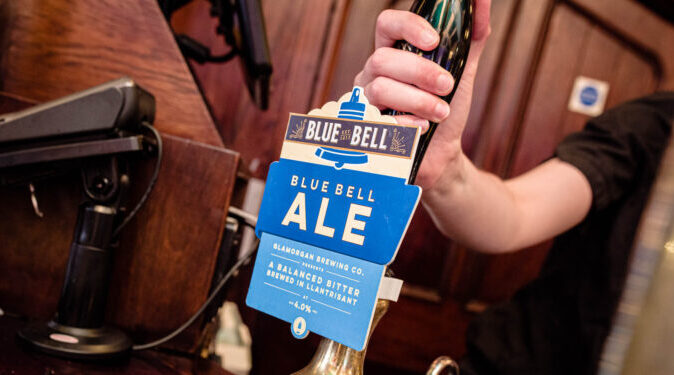What are you looking for?
ST DAVID: A BRIEF HISTORY
St David was the greatest figure in the 6th century Welsh Age of Saints, founder of scores of religious communities, and the only native-born patron saint of the countries of Britain and Ireland.
Most of what we know about St David was written by the 11th century scholar Rhygyfarch. He tells us that St David was born in Pembrokeshire around the year 500, the grandson of Ceredig ap Cunedda, king of Ceredigion. He became a renowned preacher, founding monastic settlements and churches in Wales, Brittany and England – including, possibly, the abbey at Glastonbury.
He’s said to have made a pilgrimage to Jerusalem where he became an archbishop, and established a strict religious community in what is now St Davids in Pembrokeshire, West Wales. He was famed for his pious austerity – he lived on leeks and water, apparently – and his ability to perform miracles. Once, while preaching at Llandewi Brefi, he caused the ground to rise up beneath his feet so that everyone could hear his sermon.
St David died on 1 March – St David’s Day – in 589. He was canonised by Pope Callixtus in the 12th century, and we have celebrated St David’s Day ever since.
(visitwales.com)

Celebrate St David’s Day by doing and sharing Random Acts of Welshness
St David’s Day — the day we celebrate our patron saint and all things Welsh. When we remember his famous guiding words: gwnewch y pethau bychain — do the little things. What better way to celebrate than to bring those words to life with an outpouring of hwyl and kindness.
A TASTE OF WALES – COOK AT HOME
THE NATIONAL ST DAVID'S DAY PARADE
The St David's Day Parade for 2024 will set off at 12:30 on Friday 1 March from Boulevard de Nantes at the end of King Edward VII Drive, assembly begins from 12:00 midday.
A TASTE OF WALES – EAT OUT

The Daffodil
The charming and relaxing gastropub emphasises quality seasonal produce throughout its menus with a focus on Welsh produce. From King Scallops with Penderyn Whisky Butter to the Welsh Lamb Rack, hiraeth is woven through each dish, featuring produce from many of South Wales’ greatest artisan suppliers, including Alex Gooch and Caws Cenarth.

The Blue Bell
The cosy pub, just a stone’s throw from Cardiff Castle, has a menu consisting of fresh, locally sourced ingredients; with meat, vegetables and fish from JT Morgan, Sullivan’s and Ashton’s – all of whom you can find in Cardiff Market. These can be washed down with some traditional Welsh cask ales, including their very own Blue Bell Ale, which is made by Glamorgan Brewing Co. in Llantrisant.

Graze at The Hilton
Celebrate the National Day with Bottomless Brunch at Graze Restaurant at the Hilton. Two courses including 90 minutes of free flowing drinks for £45 Per Person. All the menu items are as locally-sourced as possible with plenty of tasty vegan and gluten free options. Take a seat and let the National day take its delicious course.

The Welsh House
A wholesome, delicious and generous menu, inspired by traditional Welsh dishes using great Welsh ingredients. These are familiar Welsh dishes but done well. Their intention is to serve you honest food cooked well and at a reasonable price. They use quality locally sourced best cuts of meat, seasonal vegetables and work with Welsh suppliers to bring you the best that Wales has to offer.



